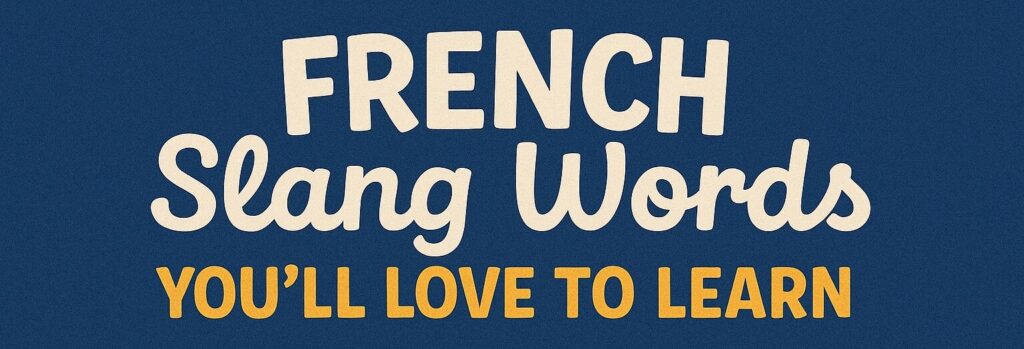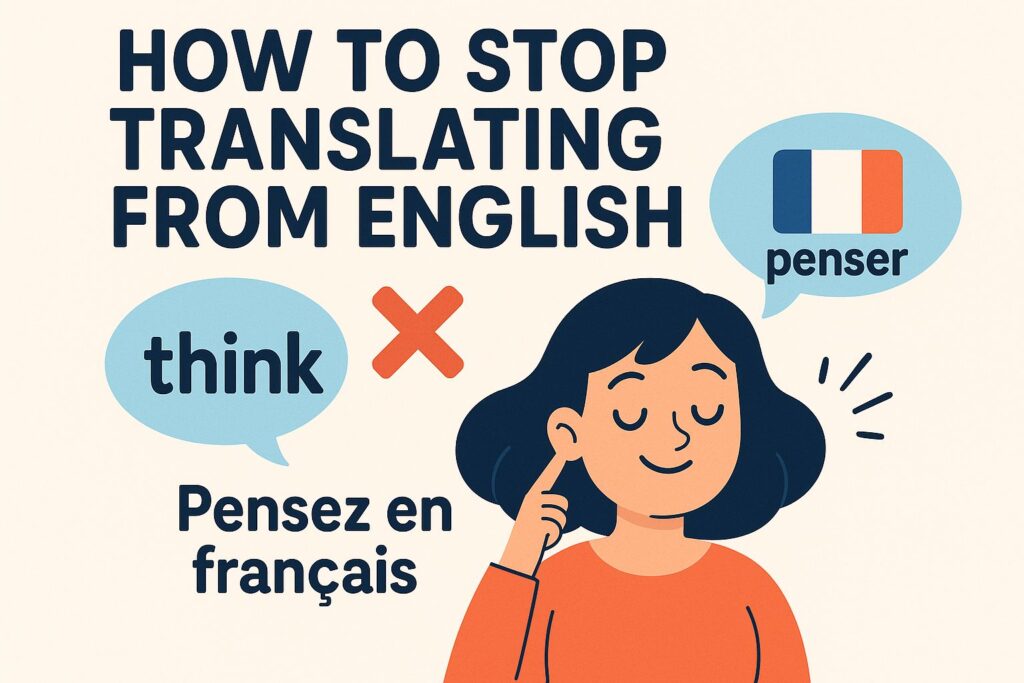
Introduction
French isn’t just the language of love—it’s a gateway to rich culture, global travel, and professional opportunities. From Parisian cafés to international business meetings, speaking French opens countless doors.
Yet, let’s be honest: traditional methods of learning French—endless grammar drills, rote memorization, and dry textbooks—can feel tedious and slow. Many beginners lose motivation before they even reach basic conversations.
The good news? Learning French doesn’t have to be boring! In fact, there are plenty of fun ways to learn French faster that make the journey engaging, social, and surprisingly effective. Ready to transform your learning routine? Let’s dive in!
Why Learning French Can Be Fun and Effective
Here’s the secret: when you enjoy the process, you learn faster. Neuroscience backs this up—positive emotions boost memory retention and make it easier for your brain to absorb new information.
Fun activities activate multiple senses, connect words to real-life context, and keep motivation high. And when you’re having a good time, practice stops feeling like a chore.
So, how can you add excitement to your French journey? Here are 10 fun ways to learn French faster—pick your favorites and watch your skills grow!
Top 10 Fun Ways to Learn French Faster
1. Play French Learning Apps & Games
Learning French has never been easier—or more addictive—thanks to apps like Duolingo, Drops, and Clozemaster. These platforms transform study sessions into a game, complete with levels, streaks, and rewards.
Each day, you’ll complete bite-sized lessons on vocabulary, grammar, and pronunciation. It’s perfect for squeezing learning into your busy schedule—and that dopamine hit from a completed lesson keeps you coming back for more!
2. Watch French Movies and Series with Subtitles
Popcorn, anyone? Watching French films or series is an excellent way to boost comprehension and improve your listening skills.
If you’re a beginner, try shows like “Extra French,” “Les Aventures de Tintin,” or films like “Le Petit Nicolas.” Keep the subtitles on at first—it helps connect spoken words to their written forms and clarifies meaning.
Plus, hearing authentic pronunciation and conversational phrases makes it easier to sound natural when you speak.
3. Listen to French Music and Learn Lyrics
Turn up the volume and sing along! French music can make vocabulary stick like glue—and it’s pure fun.
Explore genres from French pop (like Stromae or Angèle) to classic chanson (think Édith Piaf). Pick a catchy song, look up the lyrics, and sing along.
Not only will your pronunciation improve, but music also helps with rhythm, intonation, and memory recall. Who knew karaoke could help you learn French faster?
4. Join French Speaking Clubs or Meetups
Language is meant to be spoken! Joining a French-speaking club or attending a local meetup puts your skills to the test in real conversations.
Don’t have one nearby? No problem. Virtual communities on apps like Tandem, Speaky, or platforms like Meetup.com connect you with fellow learners or native speakers worldwide.
Conversations—even with mistakes—boost confidence, fluency, and make learning way more exciting.
5. Use Flashcards for Vocabulary in a Fun Way
Flashcards don’t have to be boring stacks of paper. Digital apps like Anki turn vocabulary into an engaging challenge.
Anki uses spaced repetition, a scientifically proven method that helps you remember words for the long term.
Make it fun by adding images, audio, and even quirky example sentences. It’s like having a personal quiz show in your pocket!
6. Read Comic Books or Children’s Books in French
Don’t underestimate the power of pictures plus simple text. Comics and children’s books are perfect for beginners because they offer visual context that helps you understand meaning without a dictionary.
Try titles like “Astérix,” “Tintin,” or beginner-level books like “Petit Ours Brun.” You’ll pick up conversational phrases and everyday vocabulary naturally—and enjoy the story while you’re at it.
7. Practice with AI Tools and Chatbots
Here’s a modern twist on learning French: practice chatting with AI! Tools like ChatGPT can simulate real conversations, correct mistakes, and even explain grammar in simple terms.
Ask AI to play the role of a French waiter, a travel guide, or just have casual chats. It’s private, pressure-free practice—and a fantastic way to boost confidence and fluency.
8. Follow French YouTube Channels or TikTok Creators
Why not replace some scrolling time with learning time? Short, engaging videos are perfect for picking up casual speech and cultural references.
Check out YouTube channels like Learn French with Alexa, Français Authentique, or TikTok creators who offer daily mini-lessons and funny skits in French.
It’s bite-sized immersion—and a brilliant way to sneak French into your day.
9. Play Video Games Available in French
If you love gaming, switch your favorite games to French! Many popular titles—including The Sims, Animal Crossing, and Minecraft—offer a French language option.
Gaming provides full immersion, forcing you to navigate instructions, dialogue, and menus in French. It’s entertaining, challenging, and surprisingly effective.
10. Write a Personal Diary in French
Start a simple diary and jot down a few sentences daily. Write about your day, your feelings, or new words you’ve learned.
This habit helps reinforce grammar, expand your vocabulary, and improve writing fluency. Plus, it’s a safe, judgment-free space to experiment with the language.
Bonus Tip: Immerse Yourself in French Culture
Small daily habits can add a powerful boost to your learning:
- Change your phone or social media to French
- Follow French influencers on Instagram
- Listen to French podcasts while commuting
Most importantly, embrace your mistakes. Each slip-up is a step closer to fluency—and a fun story for later!
Conclusion
French might be a beautiful language, but learning it doesn’t have to feel like endless work. Mix and match these fun ways to learn French faster and discover what keeps you motivated.
Remember: consistency + fun = faster fluency.
Ready to supercharge your French journey? Subscribe to our blog for more tips, resources, and inspiration. À bientôt!
CONTACT US now!! For more updates, subscribe to our YOUTUBE channel and follow us on INSTAGRAM.






 Why Fluency in 6 Months?
Why Fluency in 6 Months?

